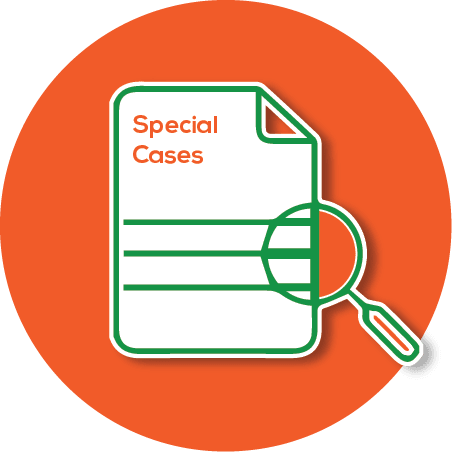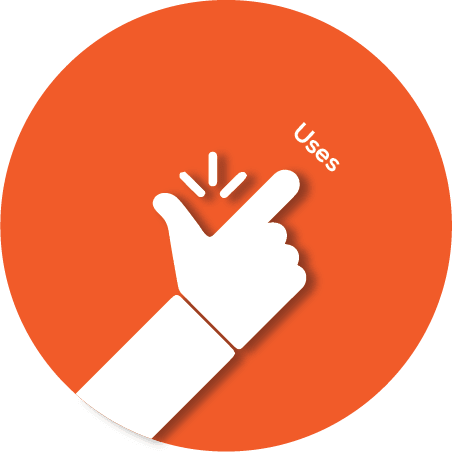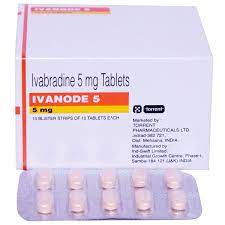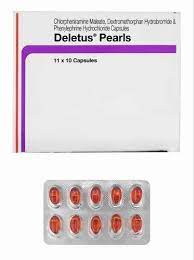ivabid IVABRADINE
Introduction to Ivabid
Ivabid is a medication primarily used to manage certain heart conditions, specifically chronic heart failure and angina. It is formulated to help reduce the heart rate, which can alleviate symptoms and improve the heart's efficiency. By slowing down the heart rate, Ivabid allows the heart to pump more effectively, providing relief to patients who experience heart-related discomfort or conditions. This medication is generally prescribed by healthcare professionals and is part of a comprehensive treatment plan that may include lifestyle changes and other medications.
Composition of Ivabid
The active ingredient in Ivabid is Ivabradine, which is present in a 10mg dosage per tablet. Ivabradine works by selectively inhibiting the cardiac pacemaker current, which is responsible for regulating heart rate. This action leads to a reduction in the heart rate without affecting the force of contraction, making it effective in treating conditions like chronic heart failure and stable angina. By lowering the heart rate, Ivabradine helps in reducing the workload on the heart, improving oxygen supply, and ultimately enhancing the patient's quality of life.
Uses for Ivabid
- Treatment of chronic heart failure.
- Management of stable angina pectoris.
- Reduction of the risk of hospitalization for worsening heart failure.
Side Effects of Ivabid
- Bradycardia (slow heart rate).
- Visual disturbances, such as luminous phenomena (phosphenes).
- Dizziness.
- Fatigue.
- Headache.
Precautions for Ivabid
Before taking Ivabid, it is important to inform your healthcare provider of any existing medical conditions, especially liver problems, heart rhythm disorders, or pacemaker use. Pregnant or breastfeeding women should consult their doctor before starting this medication. Avoid consuming grapefruit or grapefruit juice, as it can interfere with the effectiveness of Ivabid. Regular monitoring of heart rate and blood pressure is recommended while on this medication. Patients should adhere to the prescribed dosage and not adjust it without consulting their healthcare professional.
Specifications of Ivabid
Ivabid is available in tablet form, with each tablet containing 10mg of Ivabradine. It is not available as an injection, syrup, or capsule. Patients should follow the administration instructions provided by their healthcare provider to ensure optimal effectiveness and safety.
Conclusion
Ivabid is a valuable medication for individuals dealing with chronic heart failure and stable angina. By effectively reducing the heart rate, it helps alleviate symptoms and improve heart function. As with any medication, it is crucial to use Ivabid under the guidance of a healthcare professional to ensure safety and efficacy. Patients should be aware of potential side effects and adhere to all prescribed precautions. Ivabid plays a significant role in comprehensive heart care, contributing to improved patient outcomes.

Can I take Ivabid with other prescription drugs?
Ivabid can interact with certain medications, increasing the risk of side effects. Avoid using it with strong CYP3A4 inhibitors like ketoconazole, which can increase Ivabid levels in your blood. Caution is needed with other heart rate-lowering drugs, as they can enhance Ivabid's effects. Always inform your doctor about all medications you take to prevent interactions.

Can Ivabid be taken safely while breastfeeding?
Ivabid is not recommended while breastfeeding. There's limited information on whether it passes into human breast milk. Animal studies suggest it might, raising concerns about potential effects on a baby's developing heart. If you're taking Ivabid and want to breastfeed, talk with your doctor about safer medication options that would allow you to nurse your baby safely.

Can Ivabid be taken safely while pregnant?
Ivabid is not recommended during pregnancy due to limited evidence on its safety. Animal studies suggest potential risks, but human data is lacking. If you're pregnant or planning to become pregnant, talk with your doctor about the safest way to manage your condition. Your doctor can help create a treatment plan that protects both you and your baby.

Does Ivabid affect appetite?
Ivabid doesn't typically affect your appetite. Most people taking this medication don't notice changes in how hungry they feel or how much they want to eat. If you notice any unexpected changes in your appetite after starting Ivabid, talk with your doctor. They can help determine if these changes are related to the medication or if there might be another cause.

Does Ivabid affect mood?
Ivabid doesn't typically cause mood changes, anxiety, or agitation. Most people take this medication without experiencing mental health effects. If you notice changes in your mood or mental well-being after starting Ivabid, talk with your doctor. These symptoms might be related to something else, like stress or another health condition. Your doctor can help determine the cause and suggest appropriate support.

Does Ivabid affect sleep?
Ivabid doesn't typically cause sleep problems. Most people take this medication without experiencing changes in their sleep patterns. If you notice changes in how well you sleep after starting Ivabid, talk with your doctor. Sleep problems might be related to something else, like another medication or a different health condition. Your doctor can help figure out the cause and suggest ways to improve your rest.

Does Ivabid cause headaches?
Headaches can occur with Ivabid, but they are not common. If you experience mild headaches, staying hydrated and resting may help. Over-the-counter pain relievers can be used after consulting your doctor. If headaches are severe or persistent, talk with your healthcare provider. They can help determine if the headaches are related to Ivabid or if another cause needs attention.

Does Ivabid cause stomach upset?
Ivabid can occasionally cause stomach upset, such as nausea or abdominal pain. These side effects are generally mild. Taking the medication with food might help reduce discomfort. If you experience severe or persistent stomach issues, talk with your doctor. They can help determine if these symptoms are related to Ivabid or if another cause needs attention.

Does Ivabid cause weight gain?
Ivabid doesn't typically affect body weight. Most people taking this medication don't notice changes in their weight. If you experience unexpected weight changes, talk with your doctor. They can help determine if these changes are related to Ivabid or if there might be another cause. Maintaining a balanced diet and regular exercise can help manage your weight.

Does Ivabid have adverse effects?
Adverse effects are unwanted reactions to a medication. Common adverse effects of Ivabid include bradycardia, which is a slow heart rate, and visual disturbances like seeing bright spots. These effects are generally mild. Serious side effects, like severe bradycardia or atrial fibrillation, require immediate medical attention. Always inform your doctor about any new or worsening symptoms while taking Ivabid.

Does Ivabid have any safety warnings?
Yes, Ivabid has important safety warnings. It can cause a slow heart rate, which may lead to dizziness or fatigue. If you experience these symptoms, contact your doctor. Ivabid may also cause visual disturbances, like seeing bright spots. Avoid driving if this happens. Not adhering to these warnings can lead to serious health issues, so follow your doctor's advice closely.

Does Ivabid interfere with sexual function?
Ivabid doesn't typically cause sexual side effects like erectile dysfunction or loss of libido. Most people take this medication without noticing changes in their sexual function. However, if you experience any persistent discomfort or changes in your sexual function while taking Ivabid, talk with your doctor. Your doctor can help determine if your symptoms are related to the medication and recommend appropriate treatment to address any issues.

Does Ivabid limit driving?
Ivabid might affect your ability to drive safely. It can cause dizziness or visual disturbances, like seeing bright spots. If you experience these symptoms, avoid driving until they go away. When you first start Ivabid, pay attention to how your body responds before getting behind the wheel. Talk with your doctor about any concerns you have about driving while taking this medication.

Does Ivabid make it hard to think or concentrate?
Ivabid doesn't typically cause thinking problems or concentration difficulties. Most people take this medication without experiencing changes in mental focus or memory. If you notice problems with your thinking after starting Ivabid, talk with your doctor. These symptoms might be related to something else, such as another health condition. Your doctor can help determine what's causing these issues.

Does Ivabid make people tired or drowsy?
Ivabid can cause fatigue or tiredness in some people, but it's not common. If you notice you're feeling unusually tired while taking Ivabid, talk with your doctor. Your tiredness might be caused by something else, like another medication or an underlying health condition. Your doctor can help determine the cause and recommend appropriate adjustments to your treatment plan.

For how long do I take Ivabid?
Ivabid is usually a long-term medication for managing chronic conditions like heart failure. You'll typically take it every day as a lifelong treatment unless your doctor suggests otherwise. Stopping this medication without medical advice could cause your condition to worsen. Always talk with your doctor before changing or stopping your Ivabid treatment.

How does Ivabid work?
Ivabid works by slowing the heart rate, allowing the heart to pump more efficiently. It blocks the "If current" in the heart's pacemaker cells, which control the heart rate. Think of it like adjusting the speed of a metronome to a slower pace. This helps reduce the heart's workload and improves symptoms in people with heart failure.

How do I dispose of Ivabid?
Dispose of unused Ivabid by taking it to a drug take-back program or collection site at a pharmacy or hospital. If you can't find a take-back program, you can throw it in the trash at home. First, mix it with something undesirable like used coffee grounds, seal it in a plastic bag, and throw it away. This helps prevent harm to people and the environment.

How do I know if Ivabid is working?
Ivabid is used to treat heart failure, which is when your heart can't pump blood effectively. You'll know it's working if you experience fewer symptoms like shortness of breath and fatigue. Your doctor will monitor your heart rate and symptoms to assess the medication's effectiveness. Regular check-ups are important to ensure Ivabid is working properly for your condition.

How do I take Ivabid?
Take Ivabid exactly as your doctor prescribes. It's usually taken twice daily with meals. Swallow the tablet whole; do not crush or chew it. If you miss a dose, take it as soon as you remember unless it's almost time for your next dose. In that case, skip the missed dose and continue your regular schedule. Do not take two doses at once. Avoid grapefruit juice while taking Ivabid, as it can affect how the medicine works.

How long does it take for Ivabid to start working?
Ivabid starts working within a few hours of taking it, but you may not notice all the benefits right away. For heart failure, improvements in symptoms like shortness of breath and fatigue may take a few weeks. The full therapeutic effect can take several months. How quickly it works can depend on your overall health and how well you follow your treatment plan.

How should I store Ivabid?
Store Ivabid at room temperature, away from moisture and light. Keep it in a tightly closed container. Don't store it in humid places like bathrooms, as moisture can affect the medication's effectiveness. Always keep Ivabid out of children's reach to prevent accidental swallowing. Check the expiration date regularly and properly dispose of any unused or expired medication.

Is it safe to drink alcohol while taking Ivabid?
It's best to avoid alcohol while taking Ivabid. Alcohol can increase the risk of side effects like dizziness and low blood pressure. If you choose to drink occasionally, limit your alcohol intake and watch for warning signs like dizziness or fainting. Talk with your doctor about alcohol use while taking Ivabid to get personalized advice based on your specific health situation.

Is it safe to drink coffee or tea while taking Ivabid?
You can drink coffee and tea while taking Ivabid. There's no known interaction between caffeine and Ivabid. However, caffeine can increase heart rate, so monitor your intake. If you notice any unusual symptoms, talk with your doctor. Enjoy caffeinated drinks in moderation and ensure you stay hydrated by drinking plenty of water throughout the day.

Is it safe to exercise while taking Ivabid?
You can exercise while taking Ivabid, but be cautious. This medication can cause a slow heart rate, which might affect your exercise capacity. If you feel dizzy or unusually tired during physical activity, slow down or stop and rest. Drink plenty of water to stay hydrated. Most people can maintain their regular exercise routine, but check with your doctor if you have concerns.

Is it safe to stop Ivabid?
Ivabid is usually used long-term for chronic conditions like heart failure. Stopping it suddenly can worsen your condition. If you need to stop, your doctor might suggest gradually reducing your dose. Always talk with your doctor before stopping Ivabid to ensure any changes are made safely.

Is Ivabid addictive?
Ivabid is not addictive or habit-forming. It doesn't cause dependency or withdrawal symptoms when you stop taking it. Ivabid works by affecting your heart rate, not brain chemistry, so it doesn't lead to addiction. You won't experience cravings for this medication or feel compelled to take more than prescribed. If you have concerns about medication dependence, Ivabid doesn't carry this risk.

Is Ivabid effective?
Ivabid is effective for treating heart failure, which is when your heart can't pump blood effectively. It works by slowing your heart rate, allowing your heart to pump more efficiently. Clinical studies show Ivabid improves heart function and reduces the risk of hospitalization for heart failure patients. Always follow your doctor's advice to achieve the best results.

Is Ivabid safe for the elderly?
Elderly individuals are more vulnerable to medication side effects due to age-related changes in the body. Ivabid is generally safe for the elderly, but they may experience a slower heart rate or dizziness more frequently. Regular monitoring by a healthcare provider is important to ensure the medication is working safely and effectively.

What are Ivabid possible harms and risks?
**Common side effects:** * Raised blood pressure * Temporary bright spots in vision **Serious side effects:** * Slow heart rate (bradycardia) * Irregular heart rhythm (atrial fibrillation) * Seeing flashes of light (phosphenes) Bradycardia can increase the risk of a potentially fatal heart rhythm problem called torsade de pointes.

What are the most common side effects of Ivabid?
Side effects are unwanted reactions to a medication. Common side effects of Ivabid include a slow heart rate and visual disturbances, such as seeing bright spots. These occur in a small percentage of people. If you notice new symptoms after starting Ivabid, they might be temporary or unrelated to the medication. Talk with your doctor before stopping any medication.

What disease or symptom is Ivabid used for?
Ivabid is primarily used to treat heart failure, which is when your heart can't pump blood effectively. It helps improve symptoms like shortness of breath and fatigue by slowing the heart rate. Ivabid is used in combination with other heart failure treatments to enhance their effectiveness. It's not typically used alone but as part of a comprehensive treatment plan.

What is Ivabid?
Ivabid is a medication used to treat heart failure, which is when your heart can't pump blood effectively. It belongs to a class of drugs called "If current inhibitors," which work by slowing the heart rate. This allows the heart to pump more efficiently. Ivabid is used in combination with other heart failure treatments to improve symptoms and reduce the risk of hospitalization.

What is the usual dose of Ivabid?
The usual starting dose of Ivabid for adults is 5 mg twice daily with meals. Your doctor may adjust the dose based on your heart rate and how you respond to the medication. The maximum recommended dose is 7.5 mg twice daily. Always follow your doctor's specific dosing instructions for your personal health needs.

Who should avoid taking Ivabid?
Don't take Ivabid if you have severe liver problems or a very slow heart rate. It's also contraindicated in people with certain heart rhythm disorders. Use caution if you have low blood pressure or are taking other medications that affect heart rate. Always consult your doctor about these concerns before starting Ivabid.
Available in 6 variations

Ivabid 5mg Tablet 14s
strip of 14 tablets

strip of 14 tablets

Ivabid Od 10mg Tablet 10s
strip of 10 tablet

Strip of 10 tablet

strip of 10 tablets

Ivabid 7.5mg Tablet 10s
strip of 10 tablets















.svg)
